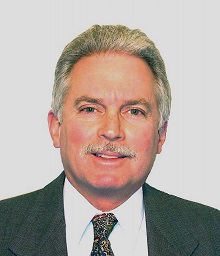Can COP27 Make a Difference?
By Phil Pasquini

Washington: The National Press Club hosted a talk by climate activist and UNICEF Goodwill Ambassador Vanessa Nakate, 25, who addressed the question of reparation payments to developing countries in seeking climate justice to compensate them for their mounting losses and ongoing damages being caused by climate change.
Nakate and others will be raising that issue at the upcoming United Nations Climate Change Conference 2022 (COP27) in Sharm El Sheikh, Egypt in November. The UN has been seeking "loss and damage" compensation for affected nations through negotiations from the largest emitters of greenhouse gases but so far has been unsuccessful in that effort.
Africa, which produces less than 4% of the world’s greenhouse gas emissions, is the recipient of catastrophic climate changes affecting millions of people. The worst drought in 40 years has intensified food insecurity for 346 million who do not have enough to eat. Climate justice advocates continue to call upon the US, China and Europe for financial support in assisting them to remedy the problems those historical emissions have caused.
While the subject remains mired in controversy, climate activists feel that it is a just solution to an ever-growing problem affecting those in the world’s underdeveloped nations who are enduring the most impact brought on by the burning of fossil fuels related to global warming.
Moderator Allison Fitzgerald Kodjak in her opening remarks quoted Vanessa by saying “It’s time for the world to pay attention when it comes to the African continent, it is of course on the front lines of the climate crisis, but it is not on the front page of the world’s newspapers.”
When asked how she first became involved in the climate change issue she related that she began looking into the subject and the information that she uncovered motivated her to leave her “comfortable space” and to strike to bring awareness to the growing global problem.
She began her campaign outside the Ugandan Parliament as a single protester for the “First Friday for Future Climate” before being joined by her siblings and cousins and then others who went outside their comfortable space in joining in. At first people looked at them as though they were “doing something strange” but the once novel act soon became a cause to many younger people increasingly concerned with climate change and climate justice.
Vanessa has started a program in Uganda by purchasing and installing solar panels for schools along with smokeless cooking stoves that use less wood for fuel in preparing students meals. She and others visit schools talking with students of different age groups to educate them on the effects of climate change and what they can do to help their country and the planet.
When asked about her new role she responded: “My role as UNICEF Goodwill Ambassador is to talk about the connection of climate change and malnutrition in Africa and how children are being affected by the climate crisis because in the end it’s not just a fight for children but a fight for all of us.”
Regarding what she can do in that role as ambassador, she said: “Yesterday I was able to meet with staff at the World Bank one of the institutions charged with leading international finance. Only a few weeks ago the president of the World Bank (WB) Mr Malpass said that he couldn’t answer the scientific consensus that greenhouse gases are warming our planet. And here in one of the most powerful cities on Earth I see climate denial is allowed to exist.”
Malpass, a Trump appointee to the WB, was recently condemned for being a climate denier when in late September he refused to acknowledge that burning of fossil fuels is rapidly warming the planet. His position sends a confusing message about the bank’s position on global warming and in turn how that institution will be involved in funding for mitigating the effects of global warming.
Reflecting on climate change and climate related disasters she mentioned hurricane Ian’s destruction in Florida. “I come from a part of the world that is suffering more and more from extreme weather like this being driven by the climate crisis. My country Uganda has been ranked as among the most vulnerable in the world.”
When asked if she would be meeting with President Biden, she said she had hoped to do so but doubted that it would happen.
Regarding CPO27 to be held in the Red Sea resort of Sharm el-Sheikh, Egypt, she related how few African climate crisis groups would be able to attend due to their limited finances. “If we leave anyone behind, then we can’t have climate justice.”
On a final personal note for both women, Fitzgerald Kodjak, asked Nakate about her reaction when the Associated Press (AP) where Kodjak was working at the time, cropped Nakate’s photo out of one published of young female activists at the World Economic Forum in Davos, Switzerland last year. “It was bad of course; it was frustrating it was heart-breaking. But I hope we changed a lot.”
At the time of the incident, she was quoted as saying that “This is the first time in my life that I understood the definition of the word racism,” and later on Twitter she noted profoundly that “You didn’t just erase a photo. You erased a continent. But I am stronger than ever.”
Hopefully, as UNICEF Goodwill Ambassador she will not have to endure having her voice cropped out of the climate crisis conversation moving forward. Especially so since we will all depend on our youth in helping to resolve the continuing crisis that knows no boundaries in its dire affects for the entire human race.
(Phil Pasquini is a freelance journalist and photographer. His reports and photographs appear in the Washington Report on Middle East Affairs and Nuze.ink. He is the author of Domes, Arches and Minarets: A History of Islamic-Inspired Buildings in America.)

